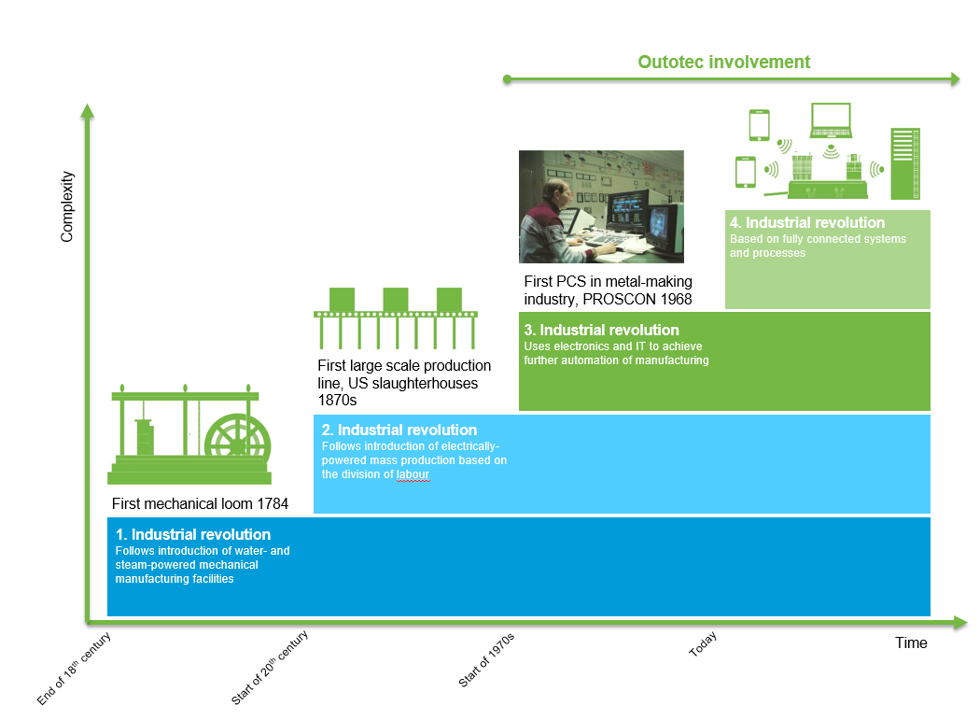The Fourth Industrial Revolution is in our opinion quite well describing of what has happened in the world of industrial production before, and what kind of development can possibly be expected next. Some are even arguing that the Fourth Revolution is about to change the world exponentially driven by the ever increasing development pace of digital technologies such as computing power, robotics, artificial intelligence, 3D printing and Internet of things. The use of these digital technologies, among many others, to change the current business models is also commonly referred to as digitalization. Obviously some disagree with all the exponential growth and the industrial revolutions and consider this as another bandwagon people are fanatically jumping on. So far we have not seen anyone to expect the current continuous progress to fully stop though. Therefore it is safe to say that investing some time in studying the capabilities of today’s and tomorrow’s technologies should pay off sooner or later. Today, probably none of the industrial producers try to gain competitive edge for example by neglecting computers and automation, right?
At Outotec we have developed new digital technologies to make the operations run smoother and more efficiently for a good time now, starting from the late 1960’s actually. Recently more and more effort has been put to boost this development by studying and developing new measuring techniques (based on machine vision or artificial intelligence for example), improving the information management (locally at the sites and in the cloud) and by digitalizing our process know-how into the world’s most advanced process control. We use the “digitalization” umbrella term when speaking about all things digital, something which you can clearly see when browsing through our new www.outotec.com/digitalization webpage.
In this first Smelting Newsletter of 2018 we are hoping you to judge these claims yourself by reading more about our latest digital smelting achievements. The first success story is a result of the continuous co-creation service model utilized at Kalgoorlie Nickel Smelter, which has helped to further stabilize the key operations at the smelter. Quite often the advanced process control is just delivered, commissioned and used, sometimes even forgotten, but definitely not tuned and improved over the lifetime of the processing facility. With this story we are glad to show the benefits of continuously observing the actual performance and the achieved results, and improving the algorithms based on these observations. The other exciting digitalization related story in this newsletter is an outcome of the latest experiences with the Outotec® FeedGuard, which has learned a lot of new tricks when evolving to its’ second generation!
We believe that continuous development and studying the new possibilities of digital technologies with open mind will result in many good things, and we are happy to note that so far the proven results are confirming this. We also believe that “digitalization” or “Fourth Industrial Revolution” are not just buzzwords or yet another bandwagon, and that despite the terms used, the utilization of digital technologies will have significant impact on how the smelters are run in the future.
